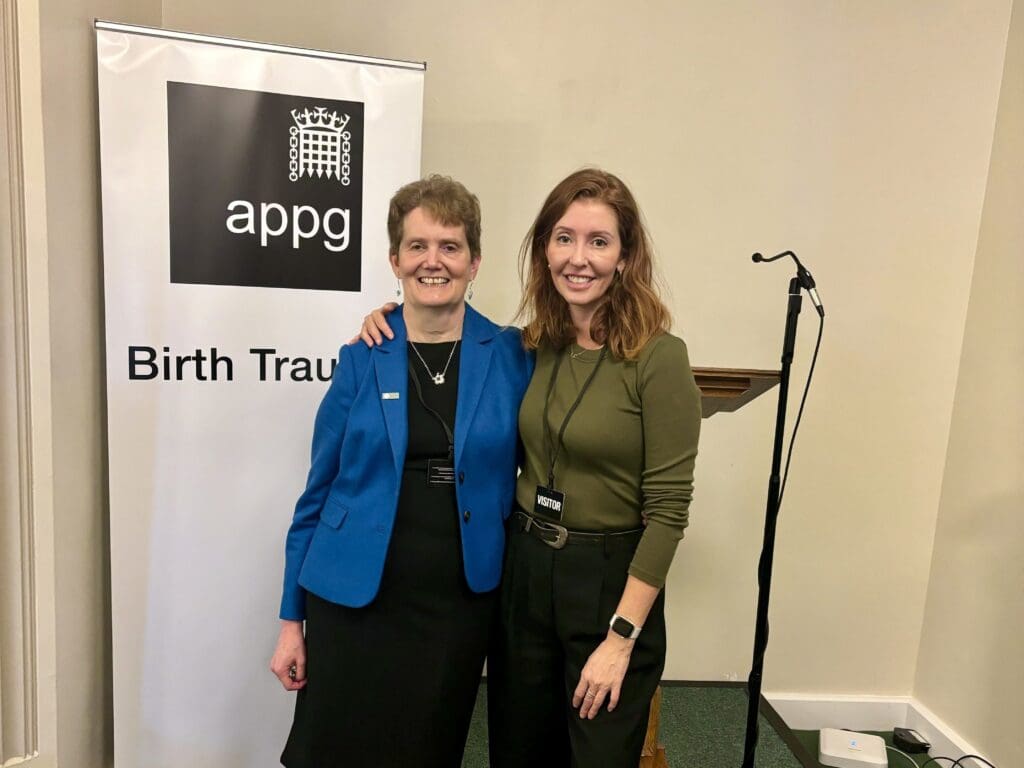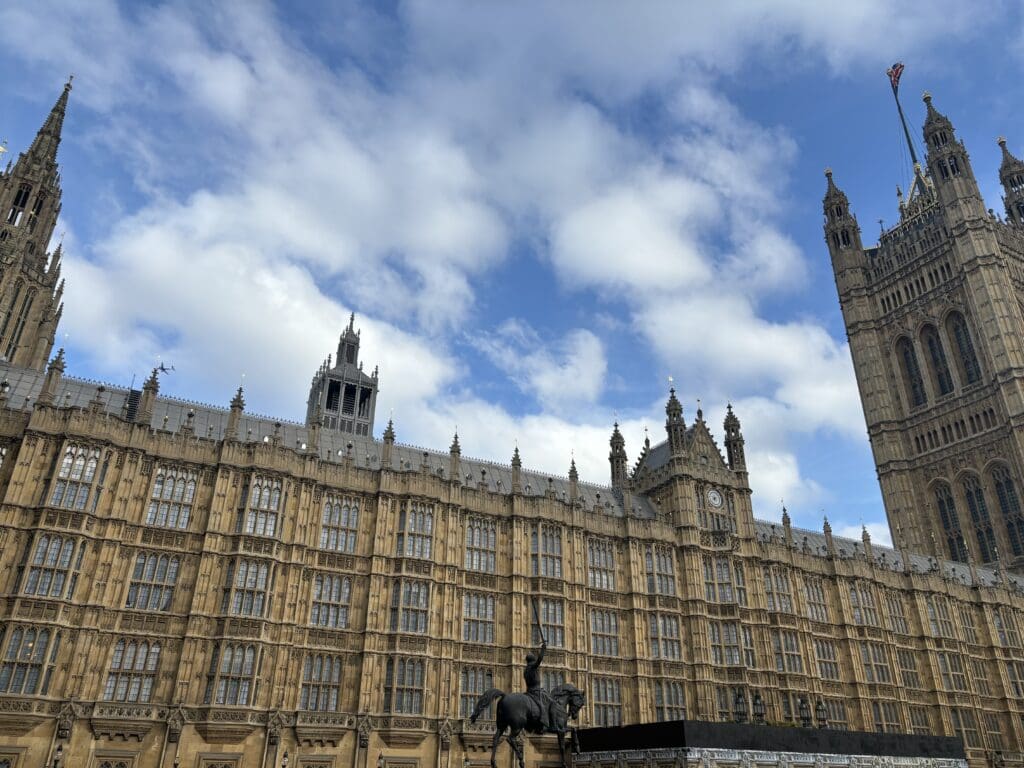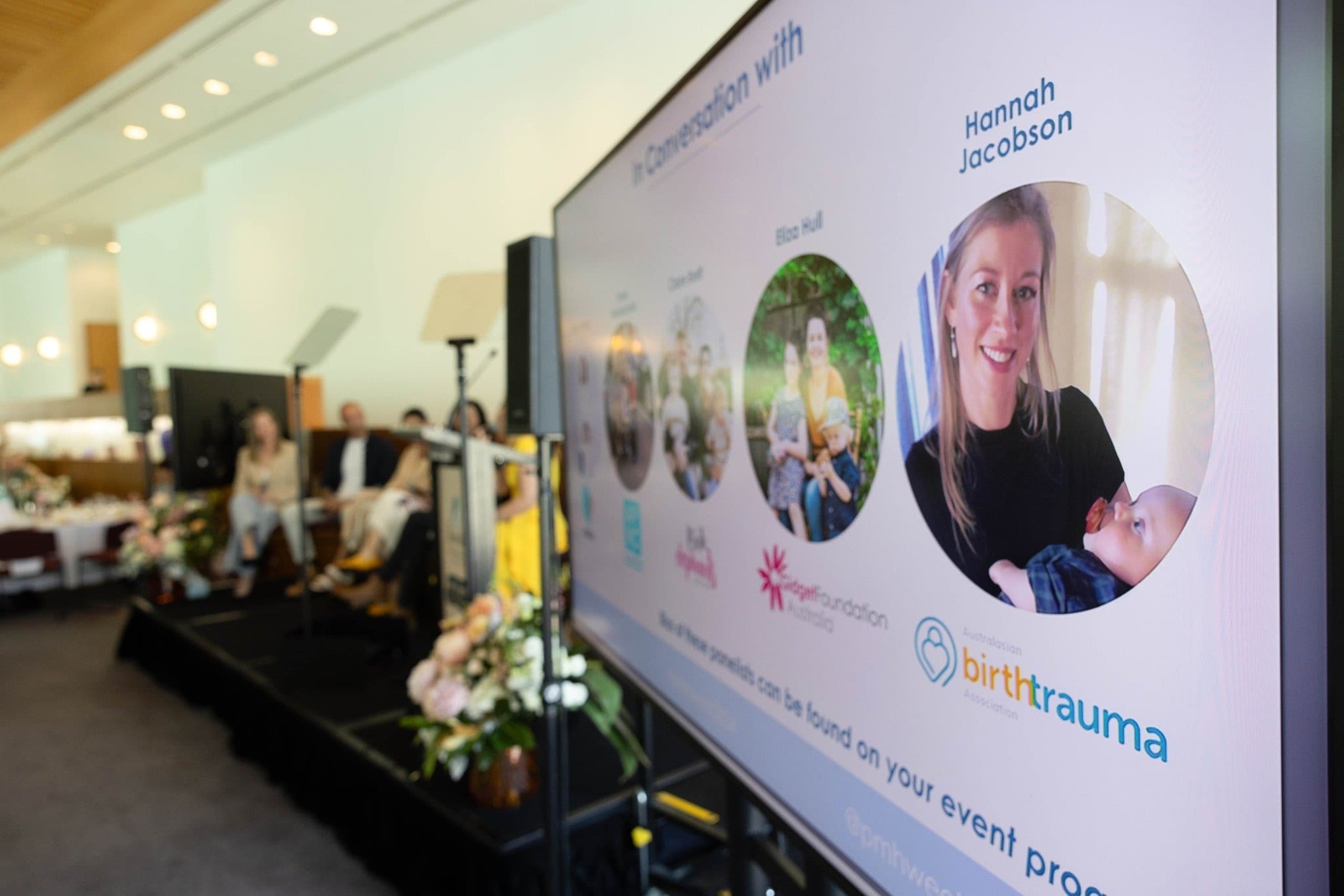Earlier in 2024, the ABTA CEO Amy Dawes was invited to testify in front of the UK Birth Trauma Inquiry, which was initiated by Theo Clarke MP in January 2024, and modelled after the NSW Birth Trauma Inquiry of 2023-2024. Amy went back to the UK for the launch of the inquiry report, which was released on 13 May 2024. Here is Amy, writing from the UK.
It’s been a big week for birth trauma in the UK.
Having landed in London for the first time in seven years, I headed straight to Parliament to attend the launch of the Birth Trauma Inquiry Report.
The report has been drawn from over 1,300 submissions from individuals who experienced traumatic births, as well as insights from nearly 100 maternity professionals. Titled Listen to Mums: Ending the Postcode Lottery on Perinatal Care, the report unearths systemic failures in maternity care and calls for bold reforms.
Both the inquiry and the report have gathered a lot of media attention here in the UK, with coverage and commentary in The Guardian, The Times, in the New Statesman and Glamour magazines, and on the BBC.
The Inquiry’s 12 recommendations for the UK Government include:
-
- Recruit, train and retain more midwives, obstetricians and anaesthetists to ensure safe levels of staffing in maternity services and provide mandatory training on trauma-informed care.
-
- Provide universal access to specialist maternal mental health services across the UK to end the postcode lottery.
-
- Offer all mothers a separate 6-week check post-delivery with a GP, which includes separate questions about the mother’s physical and mental health and the baby.
-
- Roll out and implement the OASI (obstetric and anal sphincter injury) care bundle to all hospital trusts to reduce the risk of injuries in childbirth.
-
- Oversee the national rollout of standardised post-birth services, such as Birth Reflections, to give all mothers a safe space to speak about their experiences in childbirth.
-
- Ensure better education for women on birth choices. All NHS Trusts should offer antenatal classes. Risks should be discussed during both antenatal classes and at the 34-week antenatal check with a midwife to ensure informed consent.
-
- Respect mothers’ choices about giving birth and access to pain relief and keep mothers together with their babies as much as possible.
-
- Provide support for fathers and ensure the nominated birth partner is continuously informed and updated during labour and post-delivery.
-
- Provide better continuity of care and digitise mother’s health records to improve communication between primary and secondary health care pathways.
-
- Extend the time limit for medical negligence litigation relating to childbirth from three years to five years.
-
- Commit to tackling inequalities in maternity care among ethnic minorities, particularly Black and Asian women.
-
- Research on the economic impact of birth trauma and injuries, including factors such as women delaying returning to work.
The report also advocates for creating a National Maternity Improvement Strategy led by a new Maternity Commissioner who will report to the Prime Minister, ensuring continual updates and accountability.
Every year, about 25,000-30,000 women who give birth – approximately 4 per cent – are so distressed that they meet the diagnostic criteria for post-traumatic stress disorder. Far more experience their birth as traumatic, but don’t meet the high bar for an official diagnosis of PTSD. Given this major health crisis, it is remarkable that today’s report is the first of its kind. Every politician, doctor and midwife should have to read this document.
Hannah Barnes, The New Statesman
Health and Social Care Secretary Victoria Atkins responded to the recommendations. Atkins announced her full support for the All-Party Parliamentary Group for Birth Trauma’s headline call, the development of a comprehensive cross-government national maternity strategy – starting with prioritising birth trauma as part of this year’s Women’s Health Strategy.
Atkins also announced the following:
-
- NHS England will co-produce new decision-making tools with new mothers to help them make informed choices about how to give birth, what interventions could happen, and what pain relief they should be offered. These will be made available in a range of languages and formats to make sure that they can be tailored to different settings and to different local populations.
-
- The Government has introduced stand-alone GP appointments six-to-eight weeks after giving birth, to ask crucial questions about ‘whether mum is okay’, while keeping separate checks for her baby.
-
- On physical injuries, the NHS will roll out improved perinatal pelvic health services, including guidance to better support women who experience serious tears and to prevent these from happening in the first place.
-
- NHS is also rolling out new maternal mental health services for new mums, which are already available in all but three local health systems. To end the postcode lottery, the plan is to achieve full coverage by the end of the financial year.
-
- Commission the National Institute for Health and Care Research (NIHR) to do new research into the economic impact of birth trauma, including how this affects women returning to work.
This is an incredible result for the cross-party campaign to improve postnatal after-care for mums in the UK.
It will be interesting to see what approaches are adopted in NSW. Sadly, birth trauma hasn’t received any acknowledgement in the newly released Australian budget despite the NSW Inquiry receiving over 4000 submissions. Many more parents in our community are asking us whether there will be inquiries in other states.
Congratulations to our colleagues in the UK. It was such a pleasure to meet in person the wonderful people with whom I have collaborated over the years, including Kim Thomas, the CEO of the UK Birth Trauma Association, who led the Special Advisory Group that helped shape the public inquiry alongside Nikki Wilson from Make Birth Better, The Masic Foundation, and the Maternal Mental Health Alliance.
None of this would have been possible without Theo Clarke MP, whose own experience with birth injuries led the politician to launch an inquiry into the nation’s maternity care. You can catch Theo here making sure the birth trauma inquiry is discussed at Prime Minister’s Questions.
Read the full report here.
Remember that we are all here together, and collectively, WE CAN make a difference.

If you would like to find out more about ABTA’s Advocacy, please contact
advocacy@birthtrauma.org.au.




